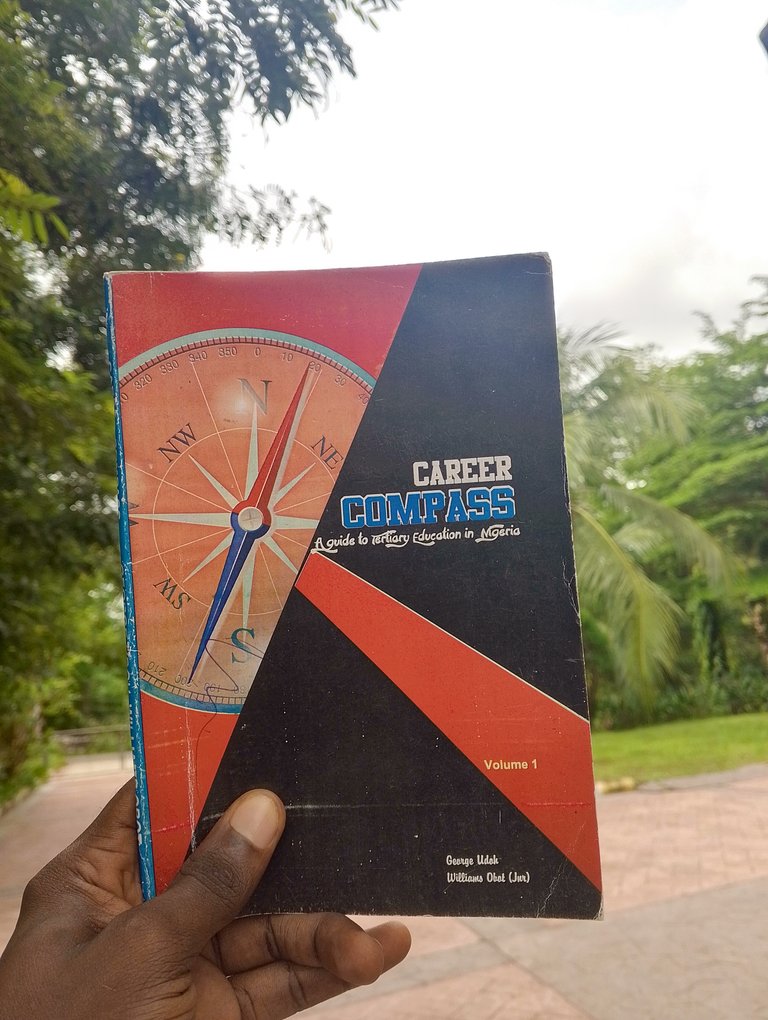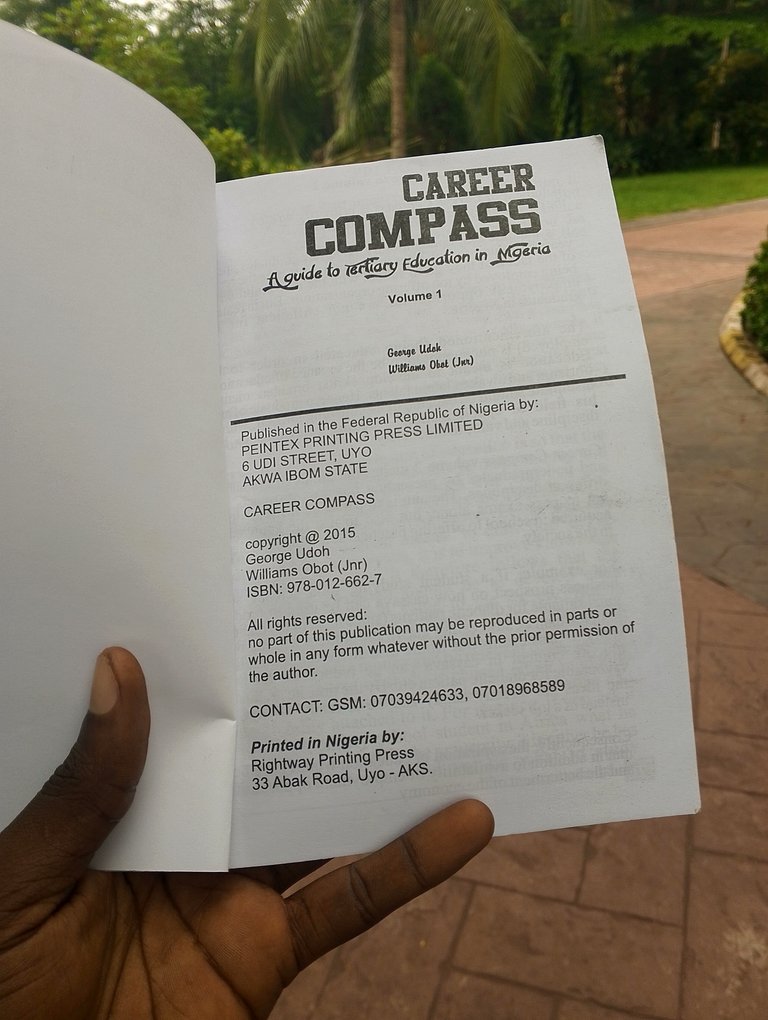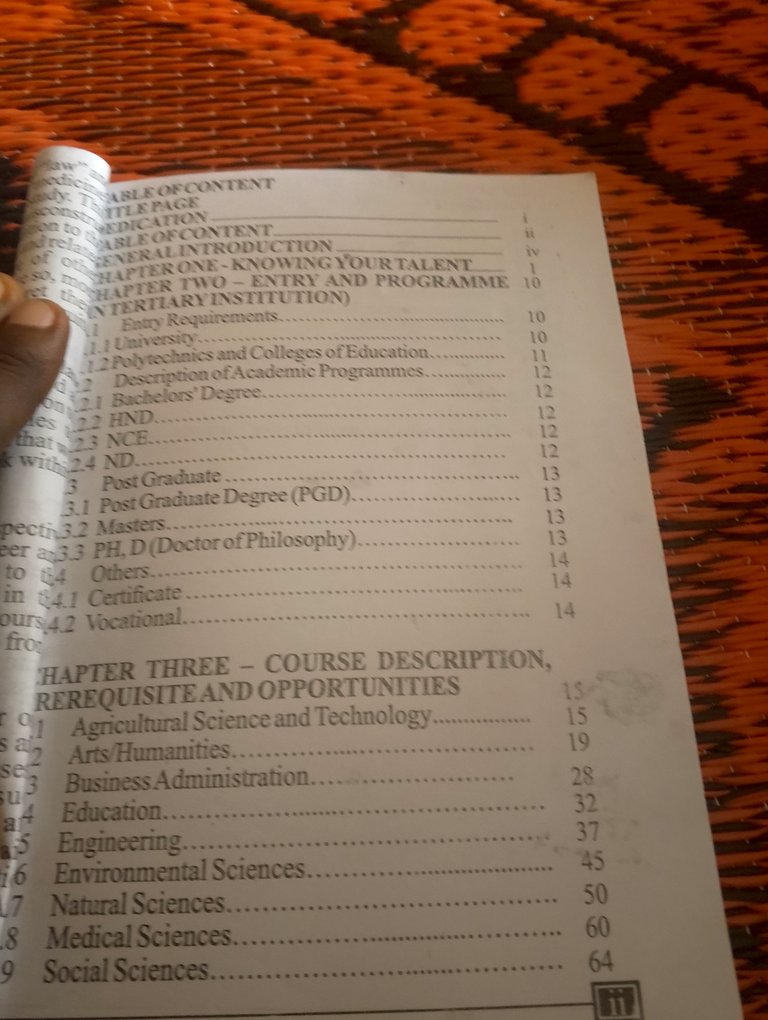Career compass, a must read book for young students(Eng/ Esp) Brújula de Carrera, un libro imprescindible para jóvenes estudiantes.
I still remember those golden days in junior secondary school the moments filled with laughter, play, and wild imagination. Back then, whenever our teachers asked us, "What do you want to become in the future?" the answers that flew around were both hilarious and ambitious. We didn’t hold back. Some of us said we wanted to be presidents, others proudly claimed they wanted to be like Tinubu, Peller, Donald Trump, Natasha, or even Godswill Akpabio of today. These were the names we heard the most in the neighborhoods and on the news, so naturally, they dreamt of becoming just like them.
Other kids, with a more "serious" tone, would say they wanted to be pilots, lawyers, engineers, doctors, or teachers. But looking back, none of us truly understood what it really meant to pursue those careers. We had no idea about the requirements, the challenges, or even whether we had the skills or passion for them. We just spoke from the excitement of the moment from what we saw on TV or heard from adults.

Fast forward to today. This morning, I dropped by a friend’s apartment after our lecture. As I walked in, the first thing my eyes landed on was a book lying neatly on his reading table. The title struck me immediately: "Career Compass: A Guide to Tertiary Education in Nigeria" by George Udoh and Williams Obot.
Curious, I asked my friend why he was reading that kind of book at this point. With a slight smile, he told me he got it for his younger brother, who’s preparing to write the university entrance exams. That simple statement triggered a wave of reflection. I stood there, holding back the emotions that quietly welled up inside me. My mind wandered back to my own secondary school days the confusion, the lack of proper guidance, the countless questions I had with no one to answer them. I didn’t have access to any book like this. There were no counselors or mentors to point me in the right direction.
Reading through a few pages of Career Compass, I was genuinely moved. The book reminded me that true education is not just about chasing a high-paying job. It’s about discovering your talents, nurturing your natural gifts, and building virtues that shape your character and future. Sadly, in many parts of Africa, education is mostly seen as a means to an end a stepping stone to financial stability or societal status. This mindset often pushes students to pick courses based on prestige rather than passion.
The book also highlights something I wish I had known back then that most students stepping into tertiary institutions are unaware of the full range of academic courses available. For example, as an art student, I thought law was the only path. Science students mostly thought about engineering or medicine. This limited exposure causes many students to blindly apply for the same few popular courses year after year, often leading to repeated failures in securing admission.
If only we had access to tools like this book earlier. If only someone had shown us how to explore our interests from junior secondary school, how to match our talents to the right courses many of us would have saved years of frustration.
Reading Career Compass feels like receiving a map while lost at sea. It gives direction, purpose, and clarity. It’s more than just a book it’s a guide for students, a sailor’s compass that points toward the shores of one’s destined future.
Thanks for reading this book and will encourage you to encourage the young ones and help them know their right paths.

Brújula de Carrera, un libro imprescindible para jóvenes estudiantes
Todavía recuerdo aquellos días dorados en la escuela secundaria inferior, momentos llenos de risas, juegos y una imaginación desbordante. En aquel entonces, cada vez que nuestros maestros nos preguntaban: "¿Qué quieres ser en el futuro?", las respuestas que surgían eran a la vez hilarantes y ambiciosas. No nos reprimíamos. Algunos de nosotros decíamos que queríamos ser presidentes, otros afirmaban con orgullo que querían ser como Tinubu, Peller, Donald Trump, Natasha o incluso Godswill Akpabio de hoy en día. Estos eran los nombres que más escuchábamos en los barrios y en las noticias, así que naturalmente soñábamos con convertirnos en alguien como ellos. Otros niños, con un tono más "serio", decían que querían ser pilotos, abogados, ingenieros, médicos o maestros. Pero mirando hacia atrás, ninguno de nosotros entendía realmente lo que significaba seguir esas carreras. No teníamos idea de los requisitos, los desafíos o incluso si teníamos las habilidades o la pasión necesarias para ellas. Solo hablábamos desde la emoción del momento, basándonos en lo que veíamos en la televisión o escuchábamos de los adultos.
Avanzando rápidamente hasta hoy, esta mañana pasé por el apartamento de un amigo después de nuestra conferencia. Al entrar, lo primero que vi fue un libro que estaba sobre su mesa de lectura, titulado "Brújula de Carrera: Una Guía para la Educación Terciaria en Nigeria" de George Udoh y Williams Obot. Curioso, le pregunté a mi amigo por qué estaba leyendo ese tipo de libro en este momento. Con una ligera sonrisa, me dijo que lo había comprado para su hermano menor, que se estaba preparando para escribir los exámenes de ingreso a la universidad. Esa simple afirmación desencadenó una ola de reflexión. Me quedé allí, conteniendo las emociones que surgían en mi interior. Mi mente se remontó a mis propios días en la escuela secundaria: la confusión, la falta de orientación adecuada, las innumerables preguntas que tenía sin nadie que las respondiera. No tenía acceso a ningún libro como este. No había consejeros o mentores que me señalaran la dirección correcta.
Al leer algunas páginas de "Brújula de Carrera", me sentí genuinamente conmovido. El libro me recordó que la verdadera educación no se trata solo de perseguir un trabajo bien remunerado. Se trata de descubrir tus talentos, nutrir tus dones naturales y construir virtudes que moldeen tu carácter y futuro. Lamentablemente, en muchas partes de África, la educación se ve principalmente como un medio para lograr un fin: un trampolín hacia la estabilidad financiera o el estatus social. Esta mentalidad a menudo empuja a los estudiantes a elegir cursos basados en la prestigio en lugar de la pasión.

El libro también destaca algo que desearía haber sabido en aquel entonces: que la mayoría de los estudiantes que ingresan a las instituciones terciarias no están al tanto de la gama completa de cursos académicos disponibles. Por ejemplo, como estudiante de arte, pensé que la ley era el único camino. Los estudiantes de ciencias pensaban principalmente en ingeniería o medicina. Esta exposición limitada hace que muchos estudiantes soliciten ciegamente los mismos cursos populares año tras año, lo que a menudo conduce a repetidos fracasos en la obtención de admisión.
Si solo hubiéramos tenido acceso a herramientas como este libro antes. Si solo alguien nos hubiera mostrado cómo explorar nuestros intereses desde la escuela secundaria inferior, cómo combinar nuestros talentos con los cursos adecuados... muchos de nosotros habríamos ahorrado años de frustración. Leer "Brújula de Carrera" se siente como recibir un mapa mientras se está perdido en el mar. Da dirección, propósito y claridad. Es más que un libro: es una guía para estudiantes, una brújula que señala hacia las costas del futuro destinado de cada uno.
Gracias por leer esto y te animaré a animar a los jóvenes y ayudarles a conocer sus caminos correctos.
Judging from you review this book looks to be both informative and inspirational. And I guess it is not written by public servants ie. employees at some Ministry of Education office. Or am I mistaken? !LOLZ
Thank you for telling us about it and reminding us that finding our calling in this life requires and open mind and broad view.
@tipu curate
Upvoted 👌 (Mana: 61/71) Liquid rewards.
lolztoken.com
“Is the bar tender here?”
Credit: reddit
@miztajovial, I sent you an $LOLZ on behalf of ervin-lemark
(2/4)
Delegate Hive Tokens to Farm $LOLZ and earn 110% Rewards. Learn more.
You speak well of the book
Thanks for stopping by and if you know anyone who in the ministry don't hesitate to make sure the book is well use
How nice of your friend to buy that book for his brother - I wish I'd had something like that in my day! It is true that many times one chooses “blindly” what to study, influenced by what “gives money” or what is “prestigious”, without really thinking about whether he/she is passionate about it or if he/she has the skills. I think it's great that this book makes you reflect on the fact that education goes beyond a good salary, that it's about finding your talents and developing them. I hope it gets into many young hands! Thanks for sharing your reflection and the existence of this valuable book.
Thanks for stopping by my friend